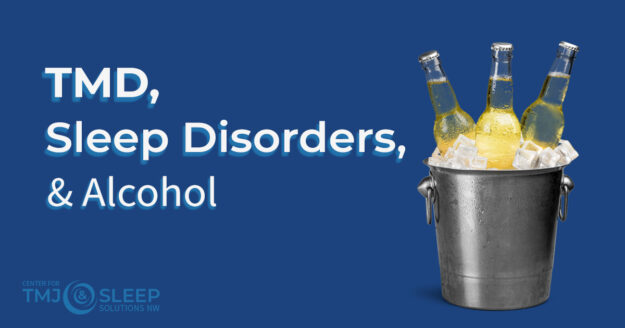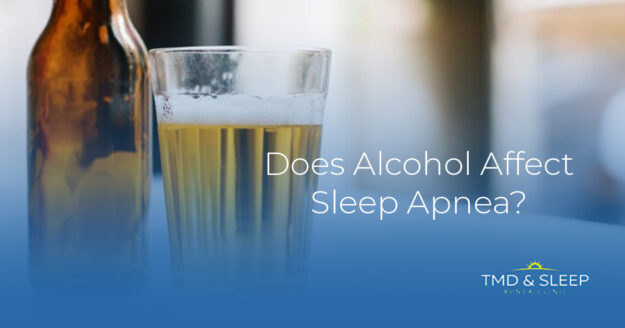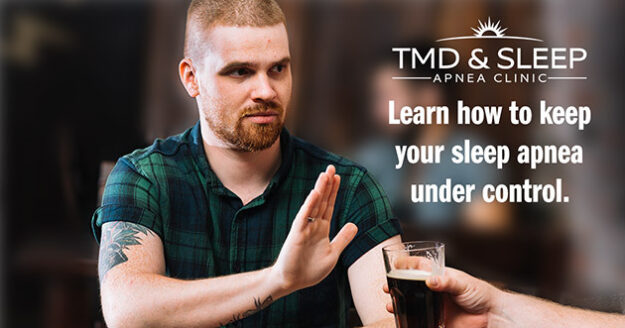Alcohol & Sleep: What You Should Know If You Have TMD Or Sleep Apnea
Do you like to unwind at night with a cocktail or two? Is Friday happy hour with your friends or colleagues a regular occurrence? Does your social life include activities where alcohol is a given? Consuming alcohol, especially in the evenings, does not promote restful sleep, and people dealing with temporomandibular disorder (TMD) or sleep apnea need to be aware of the potential effects this can have on their health. If you have either of these conditions and enjoy an alcoholic drink or two in the evenings, even occasionally, please keep reading to learn valuable information that will help you get better sleep.



